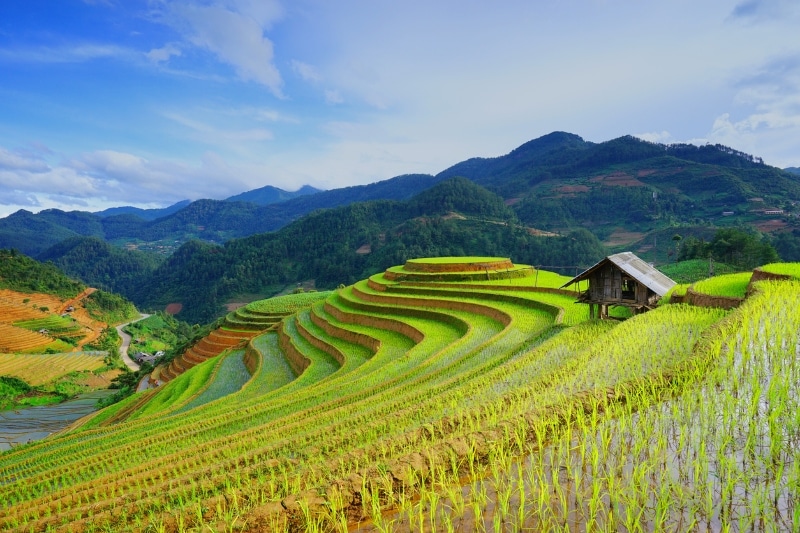Farmers in central Thailand have been adopting a new farming method under a pilot “sustainable rice platform” sponsored by GIZ (Deutsche Gesellschaft für Internationale Zusammenarbeit), the German government aid agency, in partnership with Thailand’s government. The technique, called alternate wetting and drying, eliminates the need for farmers to keep their fields submerged throughout the growing season, and reduces both water use and greenhouse gas emissions, as rice cultivation is the second biggest agricultural source of methane emissions after livestock.
The technique is not only good for the environment, but it also saves time and money for the farmers. These benefits could help the program reach its target of 100,000 households in the plains of Thailand adopting the new method. The initiative is backed by a THB 530 million (USD 17.1 million) budget within the Asia-wide Sustainable Rice Landscapes Initiative (SRLI), which aims to “cut greenhouse gas emissions from rice cultivation, restore degraded land and conserve biodiversity”. SRLI is led by UN Environment, the Food and Agriculture Organization (FAO), the Sustainable Rice Platform (SRP), the World Business Council for Sustainable Development (WBCSD), the International Rice Research Institute (IRRI) and GIZ.
The program has been met with enthusiasm, and such initiatives could blossom in Thailand, as the country had to deal with an unusually severe drought last year. Sustainable farming practices are also welcomed by farmers who can reduce their costs and achieve higher crop yields
(Sources: Financial Times, ASEAN Today)
